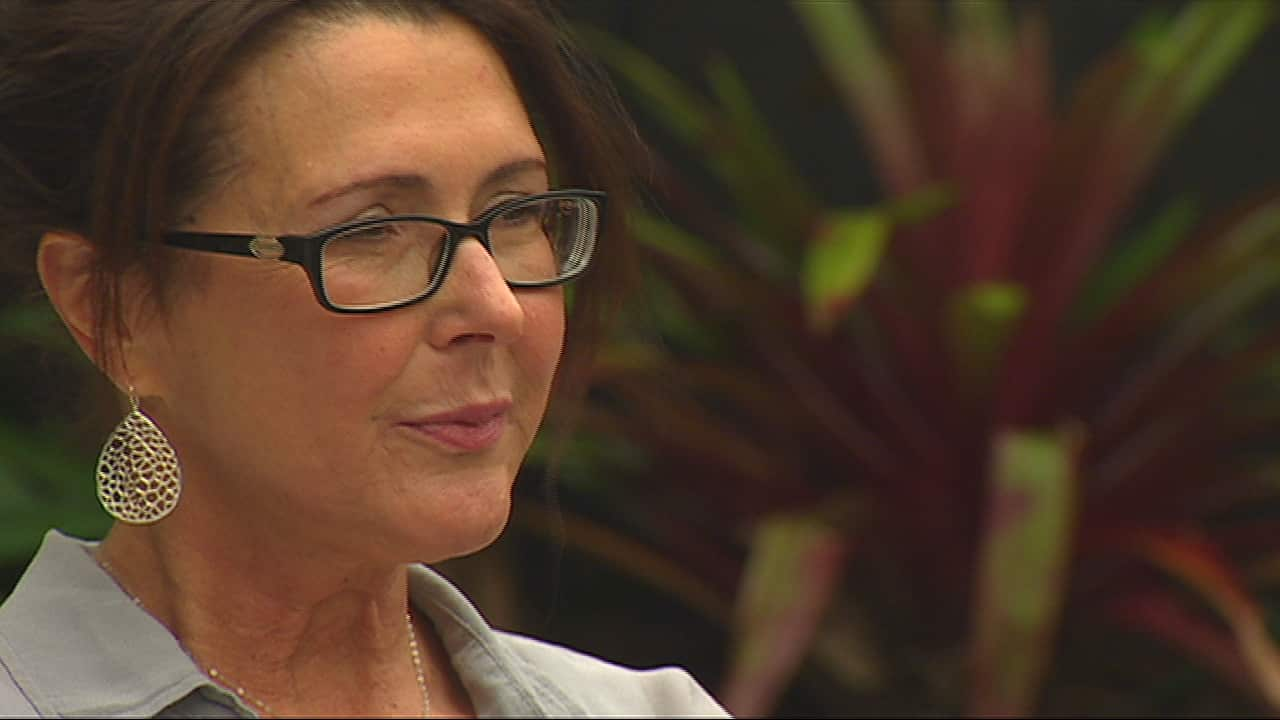2016 is a year Caroline Bernardi feared she would never see.
Eight years ago - just days before Christmas - she was told she had five tumours in her lungs.
Caroline had been diagnosed with stage 3B cancer, which means the disease was already at an advanced stage.
"Even though I had the inkling that something was wrong it still came as a massive, massive shock,” she said. “For me it was very much a case of just handling the emotions, the fear, the grief of losing my life and impacting my children's lives and my husband's and my family's [lives]."
“For me it was very much a case of just handling the emotions, the fear, the grief of losing my life and impacting my children's lives and my husband's and my family's [lives]."

Caroline Bernardi says she was told her lung cancer was incurable before a clinical trial rid her of the disease. Source: SBS
The next few years of Caroline's life were a physical and emotional battle.
Searching for a cure
Chemotherapy failed so a rare clinical trial drug became the mother of two's only option.
Caroline says her last hope soon became her reason to believe she could overcome the disease.
"The trial came in the format of three 15 milligram tablets that I was to take every morning, two hours before [and] two hours after food which I still take,” Mrs Bernardi explained.
“I had a CT scan eight weeks after beginning this trial drug, and in eight weeks there was no evidence of cancer anywhere in my chest, neck, shoulders, nowhere in my body."
But seven years on, Caroline is not completely out of the woods and still takes her medicine every day.
She has become an advocate for cancer research and leads meditation classes with other cancer patients.
Caroline says she wants more to be done to help defeat cancer.
Operation Moonshot: hype or hope?
Her plea comes weeks after an audacious proposal by US President Barack Obama during his State of the Union address earlier this month.
"For the loved ones we've all lost, for the family we can still save, let's make America the country that cures cancer once and for all," President Obama declared to US Congress and given a standing ovation.
The US has launched "Operation Moonshot" - an eight-year initiative spearheaded by Vice-President Joe Biden - to meet Barack Obama's bold goal.
Professor David Thomas, head of the Cancer Division at the Garvan Institute, believes it can be done.
"I think we're at a really exciting time in cancer research where those sorts of statements should be aspirational goals, stretch targets if you'd like, that will challenge us to try and get us as close as we possibly can," he said.
Cancer survival rates at 20 per cent
Professor Thomas believes the numbers speak for themselves.
"The survival rates have improved to roughly 20 per cent over the past 30 years. The rate and increase of knowledge generation would lead you to expect that we might be able to achieve the same thing over the next 10 years - another 20 per cent,” Professor Thomas told SBS.
“Sixty-six per cent are currently cured from cancer, at least in western communities who have a diagnosis made, 66 per cent can expect overall to be cured. So if you increase that by another 20 per cent over the next decade, well that's getting into the 80-90 per cent range."
There are more than 200 types of cancer.
The most commonly diagnosed include prostate, breast, bowel, melanoma and lung cancers.
But if caught early, breast cancer is also one of the most treatable - along with testicular, thyroid and melanoma.
One-third of cancers preventable
Professor Karen Canfell from the Cancer Council in NSW says there are multiple factors to consider when it comes to reducing the impact of cancer.
"When we are talking about cancer we have to think across the spectrum, from prevention to early detection and diagnosis, to treatment and better survival programmes,” she said.
“There are some cancer types that up until now have received less funding and we would like to see more and that includes for example lung cancer."
Australia's cancer statistics make for sombre reading.
The latest figures record almost 125,000 new cases every year, while cancer accounts for 30 per cent of all deaths in Australia.
One in two men and one in three women will be diagnosed with cancer in their lifetime.
But Karen Canfell has explained it is not all bad news.
"We've seen an improvement from less than half the people surviving to five years in the early '80s to now two-thirds of people with cancer surviving that long,” Professor Canfell said.
“So that's an indication of the success of our treatment programmes, our prevention and early diagnosis efforts.
“We know that a third of cancers are preventable through simple lifestyle factors: stopping smoking, moderating alcohol, maintaining a good diet and healthy weight."
Billions of dollars are poured into research and treatment in Australia.

Professor David Thomas from the Garvan Institute believes clinical trials are crucial to help defeat rare cancer forms. Source: Garvan Institute
Opportunity for Australia to take lead
Professor Thomas believes some of that money needs to go towards treating some of the rarer forms of cancer to give them a fuller understanding of cancers - and ultimately stop the diseases in its tracks.
"We need to have more clinical trials, more creative clinical trials that are targeted towards neglected populations,” he said.
“I think Australia has the perfect structure to become an incubator for clinical trials, research-driven treatment of patients with cancer."
Caroline Bernardi says she will always have faith that one day all forms of cancer can be cured.
"You know we're all human beings, we're all in it together so collaborate and why not? Why not have a future without cancer?" she said.









